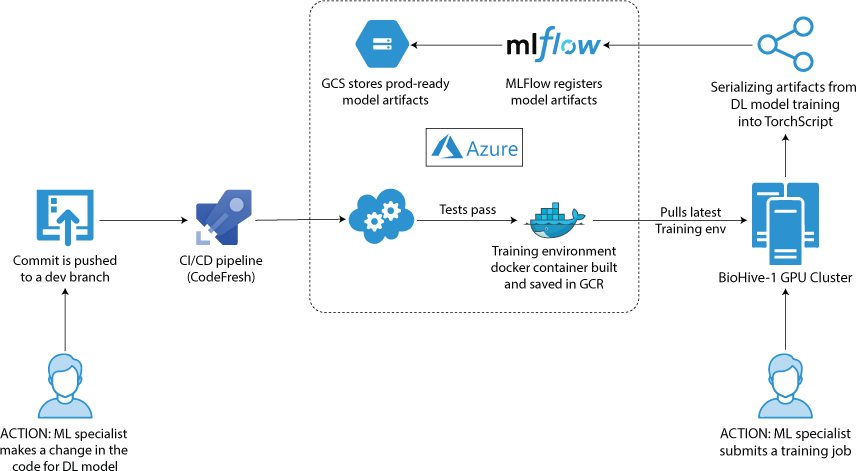Customer Background
The client is a healthcare organization that specializes in cancer treatment and risk management. They use various medical imaging technologies and laboratory tests to detect and diagnose cancer in patients. The organization aims to provide high-quality and personalized care to its patients while keeping up with the latest advancements in cancer research and treatment.
Challenges
Developing accurate and reliable machine learning models for cancer risk assessment is crucial for improving treatment outcomes and survival rates. However, our client encountered several challenges in this process.
One of the challenges was dealing with data from multiple electronic health record (EHR) systems, which were in tabular format. Additionally, the dataset was large, making it difficult to process and analyze. Another issue was handling missing values and outliers in the data. This added complexity to predictive model development.
Furthermore, the project had to ensure compliance with regulations and ethical considerations, such as data privacy, security, model explainability and audibility. These factors added another layer of complexity to the project.
- Inconsistent and missing data values
- Ensuring model robustness and generalizability
- Optimal model performance
Solutions
Our approach to MLOps is based on the principles of continuous integration and continuous delivery (CI/CD), automated machine learning (AutoML), and monitoring and observation. These principles help ensure that machine learning models are deployed and maintained effectively, which leads to improved performance and accuracy. We offered the following solutions to help the client deliver high-quality machine learning solutions:
Data pipeline
The data science consultants at Softweb Solutions discussed the clients’ business requirements and understood their challenges. They suggested implementing MLOps to solve these issues efficiently. We developed a data pipeline that handles data from multiple sources. This pipeline was designed to clean and preprocess the data, handle missing values and transforms the data into a format suitable for ML model implementation.
Developing and enhancing model performance with MLOps
Softweb Solutions tackled the challenge of ensuring the robustness and generalization capability of the ML model. This was done by implementing hyperparameter tuning, feature engineering and feature selection in the model pipeline. This helped optimize the performance of the model. A combination of training and validation data was used to evaluate the model’s performance and ensure its robustness and accuracy.
We used imputation techniques and outlier detection methods. This helped ensure that the model is trained on a clean and consistent dataset.
Our data experts used two key MLOps practices to proactively ensure the model’s optimal performance: continuous monitoring and testing with real-time data from new patients. This allowed them to detect and address any performance degradation or drift proactively.
Adhering to compliance
Softweb Solutions also ensured compliance by implementing MLOPs measures such as data anonymization, model explainability and auditability. This helped ensure the privacy and security of patient data while maintaining transparency in the model development process.
Dashboard

Industry
Healthcare
Technologies / Platforms / Frameworks
Azure SQL, Azure Blob, Azure Data Factory, Azure ADLS, Azure ML, Azure (containerization), Azure Synapse, Docker
Benefits
- Increased accuracy in cancer risk prediction
- Personalized risk management plans for patients
- Early detection of cancer for timely treatment
- Improved patient outcomes
Decade of Trust & Experience
1630+
Projects
545+
Technocrats
26+
Products and Solutions
1020+
Customers
Connect Now
Our experts would be eager to hear you.




